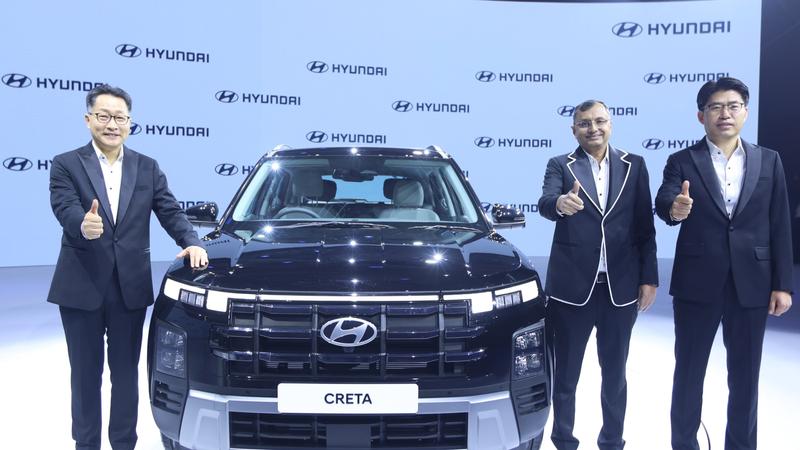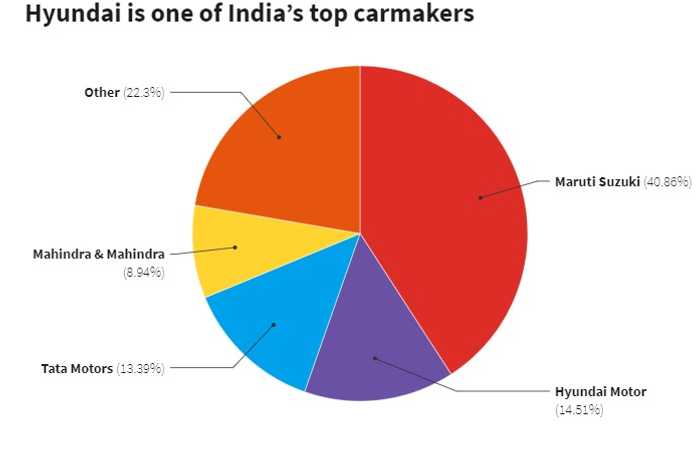Published 11:48 IST, February 9th 2024
Hyundai’s India IPO will crush Korean discount
If Hyundai achieves target $30 billion valuation, a sale of 10% of the shares would make it one of India's biggest IPO.

Defies logic. The company plans to invest close to $4 billion in the Indian market over the next decade to launch new electric vehicles. It is not efficient for multinationals to float their businesses in all the countries where they operate. But $45 billion Hyundai's plan to list its business in India - the third biggest carmaker in the world's fastest growing car market - looks roadworthy.
First, there's plenty of value to unlock. If the South Korean auto company achieves its target $30 billion valuation, per Reuters, a sale of 10% of the shares would make it one of India's biggest ever initial public offerings. The unit would be worth two thirds of its parent's market capitalisation.
An India listing would help Hyundai offset the "Korean discount", where the country's companies command lower valuations than other Asian and global peers due to the dominance of opaque conglomerates and geopolitical risks involving North Korea. The latter is coming into sharp focus as Pyongyang this week voted to scrap all economic cooperation with Seoul. Hyundai's target valuation implies a multiple of 53 times trailing earnings for the India business, 10 times its parent's.
A lofty ratio can be justified by Hyundai's blistering and profitable growth in India where equity markets are frothy. Local financial filings suggest the unit generates barely 7% of its parent's revenue but its earnings surged 62% in the year to March 2023 and its net profit margin of 7.6% is rising fast too. The final multiple will become clearer when the company publishes its prospectus as local filings don't always provide a complete picture. Maruti Suzuki, which makes the largest number of India's passenger cars, trades on 31 times.

A separate listing will also make it easier for the Indian unit to raise funds. Hyundai, like its peers Tata Motors, Mahindra & Mahindra and Maruti, is investing to ramp up production, charging stations and a battery pack assembly unit. It’s also buying a now defunct GM plant to expand its production. Tata and Mahindra have brought outside investors including private equity firm TPG and Singapore's Temasek into their electric-car businesses. Hyundai will be able to do the same more easily once it has local ticker.
Then there is the potential boost if Hyundai charges its unit royalty fees. Maruti regularly pays these to Suzuki for using its brand among other things. Unilever and Nestlé receive these from their listed Indian units too. It's a delicate issue. In many cases, New Delhi thinks these payments are too high and prefers companies to boost investment in local research and development. For Hyundai though, the benefits of listing its India business will probably far outweigh any challenges.
Updated 11:48 IST, February 9th 2024





